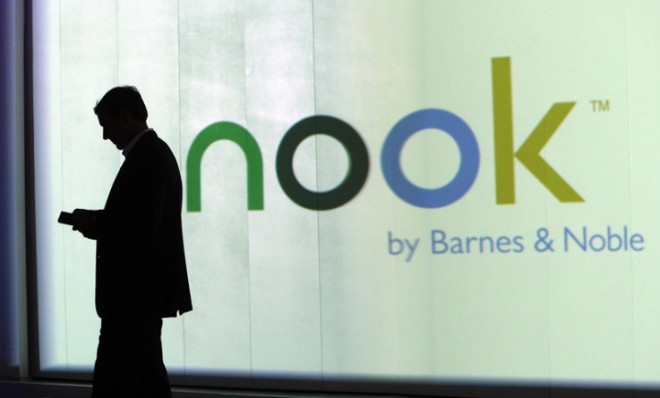Is this the end for Barnes & Noble?
The brick-and-mortar bookseller's revenues are plummeting — and its flagship e-reader may not be long for this world

A free daily email with the biggest news stories of the day – and the best features from TheWeek.com
You are now subscribed
Your newsletter sign-up was successful
Barnes & Noble is at a fork in the road.
The big-box bookseller posted weak earnings for its fiscal third quarter, which ended Jan. 26. Indeed, sales in its Nook e-reader and digital-book unit "tanked 26 percent during the crucial holiday quarter," said Tiffany Hsu in the Los Angeles Times. Barnes & Noble's retail operations didn't fare much better. Overall, the nation's largest bookstore company — and pretty much the only major chain in the business — "had a rough quarter, with total revenue down 8.8 percent to $2.2 billion."
Those financial results create a bleak outlook for the company's future. Earlier reports suggested the company might scale back Nook production, but some analysts are now whispering that the company might discontinue the tablet altogether.
The Week
Escape your echo chamber. Get the facts behind the news, plus analysis from multiple perspectives.

Sign up for The Week's Free Newsletters
From our morning news briefing to a weekly Good News Newsletter, get the best of The Week delivered directly to your inbox.
From our morning news briefing to a weekly Good News Newsletter, get the best of The Week delivered directly to your inbox.
"The proliferation of tablets made by Apple, Microsoft, Samsung and many other competitors has left the Nook line with less than 15 percent of the e-reader market," said Rick Newman at U.S. News & World Report. And that may not be enough for the Nook to thrive.
Last month, Barnes & Noble announced it would shutter 20 of its stores each year over the next decade. Waning print sales and stiff competition from online competitors — which the Nook was meant to buffer against — have threatened the company's footprint, and already placed its largest direct competitor — Borders — out of business.
But the beleaguered bookseller might have one trick left up its sleeve. Earlier this week, its chairman, 70-year-old Leonard Riggio, revealed he's planning a bid to buy back the chain's retail operations, including its 689 U.S. stores and barnesandnoble.com.
Riggio, who worked as a student bookstore clerk while studying at New York University in the 1960s, purchased the company's flagship store in Manhattan in 1971 for $1.2 million, and spent the next several decades transforming it into a $7.1 billion empire.
A free daily email with the biggest news stories of the day – and the best features from TheWeek.com
"Either he believes that this business is a special business that he wants to cherish and nurture, or he thinks he's going to do something other than sell books with it," said James McQuivey, an analyst at Forrester Research, in an interview with NPR. "And my money would be on the latter if you are going to put money on it at all."
Sergio Hernandez is business editor of The Week's print edition. He has previously worked for The Daily, ProPublica, the Village Voice, and Gawker.
-
 What to know before filing your own taxes for the first time
What to know before filing your own taxes for the first timethe explainer Tackle this financial milestone with confidence
-
 The biggest box office flops of the 21st century
The biggest box office flops of the 21st centuryin depth Unnecessary remakes and turgid, expensive CGI-fests highlight this list of these most notorious box-office losers
-
 The 10 most infamous abductions in modern history
The 10 most infamous abductions in modern historyin depth The taking of Savannah Guthrie’s mother, Nancy, is the latest in a long string of high-profile kidnappings